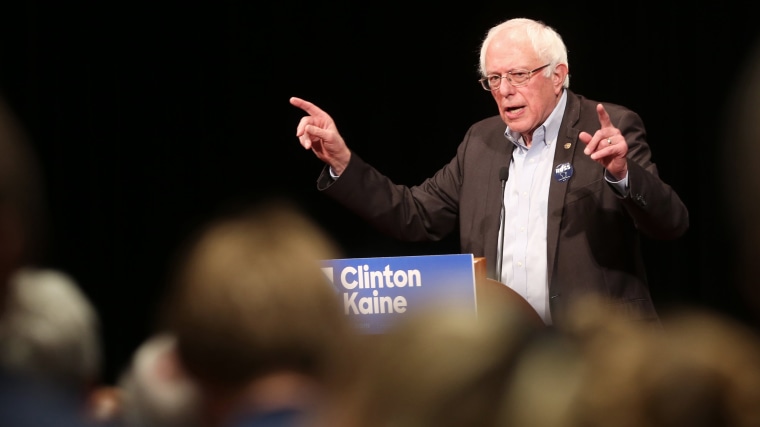In Michigan's Democratic gubernatorial primary, Sen. Bernie Sanders (T-Vt.) invested a fair amount of energy rallying behind Abdul El-Sayed. Last night, as the Washington Post noted, he came up short.
Gretchen Whitmer, the former Democratic leader in Michigan's state Senate, won the her party's gubernatorial primary, according to the Associated Press. She beat Abdul El-Sayed, the former director of Detroit's health department, and Shri Thanedar, a wealthy chemical testing executive. [...]El-Sayed, a doctor and Rhodes scholar, earned endorsements from Alexandria Ocasio-Cortez and Sen. Bernie Sanders (I-Vt.), with an agenda that resembled the Vermont senator's — universal health care, a $15 minimum wage and no "corporate" donations. Whitmer also endorsed a $15 minimum wage, but focused her campaign on "fixing the damn roads," a memorable promise to repair the state's infrastructure.
As of the latest tallies, Whitmer, long seen as the frontrunner, won with relative ease, outpacing El-Sayed by more than 20 points. She'll face Bill Schuette, Michigan's very conservative state attorney general, in the fall.
For the Vermont independent, it was the latest in a series of 2018 electoral setbacks this year. It'd be an unfair exaggeration to say all Sanders-backed candidates have come up short in competitive contests -- Ben Jealous, for example, recently prevailed in Maryland's Democratic gubernatorial primary -- but as the New York Times recently noted, the progressive senator "has struggled so far to expand his political base and propel his personal allies to victory in Democratic primaries."
Why is that? There are a few relevant angles to keep in mind.
The first is the fact that Sanders has taken some pretty significant risks, rallying behind relative long-shot candidates solely on principle, without much regard for their prospects. If the Vermonter simply wanted to boost his overall success rate, he could throw his support behind more likely winners. To his credit, Sanders seems indifferent to appearances.
Second, there seems to be an enduring pragmatic streak among much of the Democratic base. Sanders may be skeptical about "electability" considerations, but it looks like more than a few Dems, desperate to roll back Republican gains, aren't just eyeing the most progressive candidate in every primary.
On a related note, for many Democratic voters, words like "establishment" aren't necessarily a problem. Jeet Heer explained overnight, in reference to the Michigan primary, "Whitmer's great advantage was she had the backing of the party's infrastructure, getting the endorsement of almost every Democratic official in Michigan and the strong support of labor unions. Unlike her outsider rivals, Whitmer was a party candidate who emphasized her legislative track record, notably her success in getting Medicaid expansion."
Sanders generally sees "the party candidate" as the one to avoid. Plenty of Dems apparently see this differently.
The independent senator can, however, take some solace in the fact that his agenda is advancing, even if some of his favorite candidates are not. "Medicare for All," a staple of Sanders' platform, is quickly becoming a mainstream issue for many Democratic candidates nationwide.
